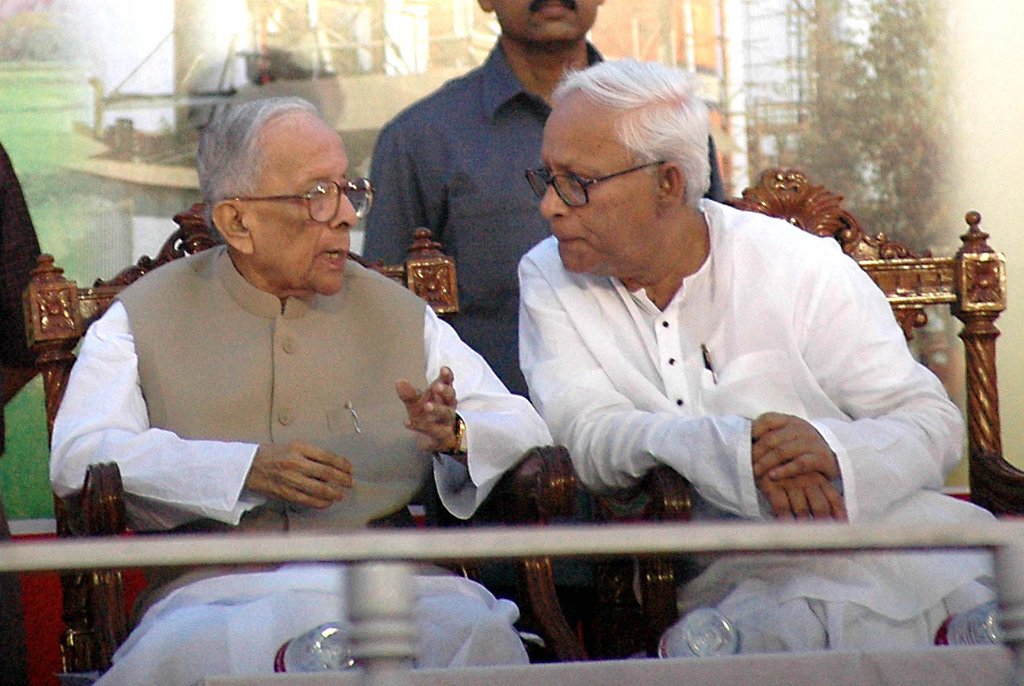Contents
Today, we mourn the loss of Buddhadeb Bhattacharjee, a significant figure in West Bengal’s political and cultural spheres, who passed away at the age of 80. His demise marks the end of an era, leaving behind a legacy that has profoundly shaped the state’s modern history. Bhattacharjee’s life was characterized by his dedication to political service, his ambitious vision for West Bengal, and his deep connection to Bengali culture and literature.
Early Life and Political Ascent
Born on March 1, 1944, in Kolkata, Buddhadeb Bhattacharjee’s journey into politics began during his college days at Presidency College, where he studied Bengali literature. His early involvement with the Communist Party of India (Marxist) (CPI(M)) laid the foundation for a lifelong commitment to Marxist ideology and public service. Bhattacharjee, the nephew of renowned poet Sukanta Bhattacharya, did not initially engage deeply in student politics. Instead, he was a great sports person, playing kabaddi and cricket. Unfortunately, he had to quit playing cricket due to an eye problem, but his passion for the sport remained undiminished. Bhattacharjee’s political career saw him rise through the ranks, culminating in his election as the Chief Minister of West Bengal in 2000, succeeding the venerable Jyoti Basu.
Leadership and Vision
As Chief Minister, Bhattacharjee spearheaded a series of bold initiatives aimed at transforming West Bengal’s economic landscape. His tenure from 2000 to 2011 was marked by a strong push towards industrialization, aiming to attract significant investments and create job opportunities in the state. One of the most notable projects was the Tata Nano factory in Singur, which symbolized his vision of industrial growth. However, this initiative also sparked significant controversy due to issues surrounding land acquisition, leading to widespread protests and political unrest.
His Passion for Writing and Its Impact on His Political Career
Buddhadev Bhattacharya’s interest in writing has been a significant aspect of his political and intellectual journey. Before joining the CPI(M), he was actively engaged in various forms of literature, reflecting his deep involvement in literary circles. His writing primarily focused on editing and contributing to party publications, where he played a crucial role in shaping the ideological discourse of the party. Even after joining the CPI(M), his commitment to writing continued, as he used it to articulate and propagate the party’s views and policies. His literary skills were integral to his political activities, allowing him to communicate effectively with both the party members and the public.

Balancing Industrialization and Agriculture
Bhattacharjee’s administration faced the complex challenge of balancing industrial ambitions with the needs of the agrarian community. While his policies aimed at modernizing West Bengal’s economy, the resistance from farmers and the resulting socio-political turmoil highlighted the difficulties inherent in such transformative efforts. Despite these challenges, Bhattacharjee remained committed to his vision of a prosperous and industrially advanced West Bengal.
Commitment to Social Welfare
Beyond his focus on industrialization, Bhattacharjee made significant strides in improving the state’s education and healthcare systems. His government introduced various reforms to enhance the quality and accessibility of these essential services, reflecting his broader vision of social development. Under his leadership, West Bengal saw improvements in literacy rates and healthcare infrastructure, contributing to the overall well-being of its citizens.
Literary Contributions and Cultural Impact
Apart from his political endeavors, Bhattacharjee was an avid reader and writer, deeply engaged with Bengali literature and poetry. His literary pursuits added a unique dimension to his personality, making him a respected figure not only in political circles but also in cultural communities. His passion for literature and the arts was evident in his writings and speeches, which often reflected a profound appreciation for Bengal’s rich cultural heritage.

The Final Years and Legacy
In his later years, Bhattacharjee’s health issues became more pronounced, leading to multiple hospitalizations. Towards the end of his life, Buddhadev’s vision deteriorated, making it difficult for him to read. Due to the near-complete loss of vision, he was unable to write his final book by hand. The book was written based on his spoken words.
A literature enthusiast, Buddhadev wrote numerous plays and essays, and also translated works of foreign poets and writers. In his book “Swarg-er Niche Mahabishrunkhla”, he criticized the policies of contemporary China. In the early 1980s, he traveled to China with Promod Dasgupta, and an account of that experience is included in the book’s conclusion. Despite these challenges, his influence and legacy continued to resonate across West Bengal. His death marks the conclusion of a significant chapter in the state’s history, but his contributions and ideals will continue to inspire future generations.
Buddhadeb Bhattacharjee’s legacy is multifaceted, encompassing his ambitious vision for economic development, his dedication to social welfare, and his deep cultural engagement. In 2022, the central government nominated Buddhadev for the Padma Bhushan honor, which he declined. As we reflect on his life, we honor the memory of a leader who navigated the complexities of governance with determination and passion. Buddhadev’s popularity extended beyond just the leftist supporters to the general public. His straightforward life and modest living in a flat on Palm Avenue have often been the subject of discussion. His impact on West Bengal’s political and cultural landscape will remain a guiding force for years to come.